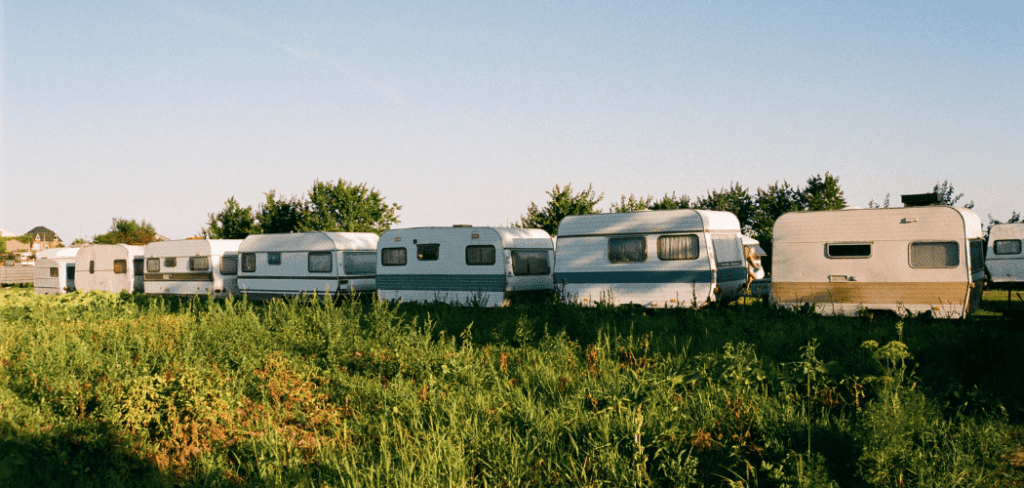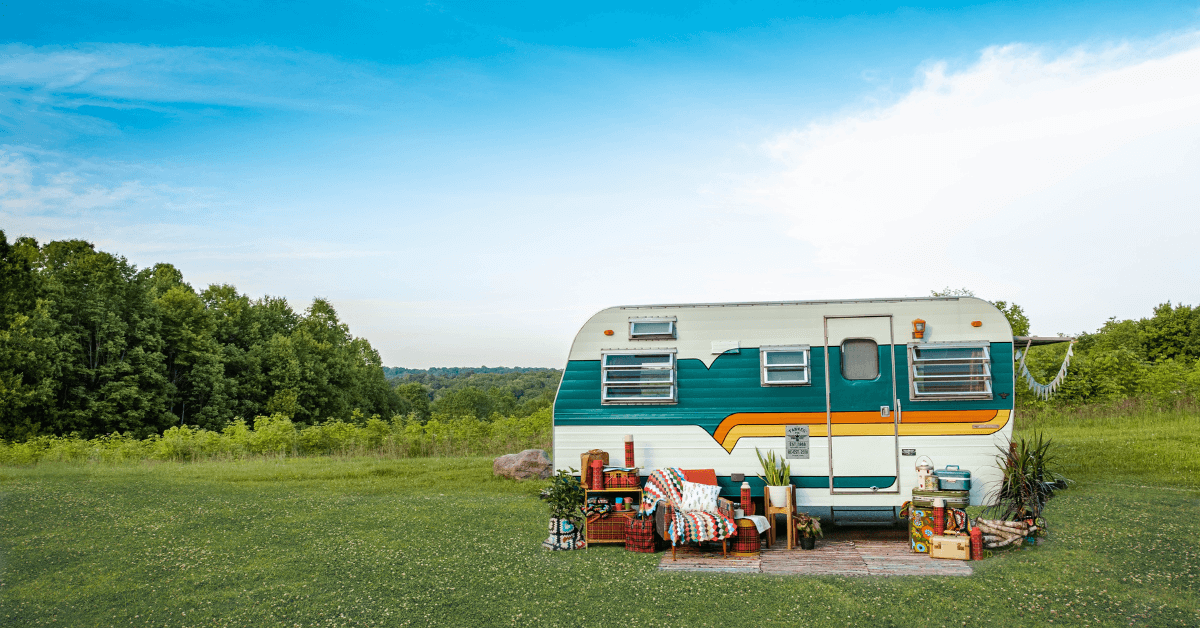Living in a camper, or a recreational vehicle (RV), has become an increasingly popular lifestyle choice for many people in recent years. Whether you’re a full-time traveler, a weekend adventurer, or just looking for an alternative to traditional housing, living in a camper offers a unique set of benefits and challenges.
For instance, living in a camper offers the unique opportunity to live closer to nature. With a camper, you can park in the heart of a national park or a secluded wilderness area and wake up to stunning views and the sounds of nature. It’s basically a great way to disconnect from the hustle and bustle of city life and reconnect with the natural world.
However, before you hit the road in your camper, it’s important to understand the legalities of camper living. Zoning laws and regulations vary from state to state and can impact where and how you can park and live in your camper. It’s important to research and understand the laws and regulations in your area before setting out on your camper-living adventure.
In the following sections of this article, we’ll dive into the legalities of living in a camper and explore the different regulations that impact camper living across the United States.
The Legalities of Living in a Camper
While living in a camper can be an incredible experience, it’s important to understand the legalities and regulations that come with this lifestyle. The laws regarding camper living can vary depending on your location, so it’s crucial to do your research and ensure you’re abiding by all applicable rules and regulations.
Here are some of the key legal considerations to keep in mind when living in a camper:
1. Zoning and Land Use Regulations
One of the most important legal considerations when living in a camper is zoning and land use regulations. Many cities and counties have specific zoning laws that dictate where you can park your camper and how long you can stay there.
Some areas may only allow you to park your camper in designated RV parks, while others may permit camping on private property or public land. It’s important to check with local authorities to ensure you’re in compliance with all zoning and land use regulations.
2. Health and Safety Codes
Another crucial legal consideration when living in a camper is health and safety codes. Many areas have laws regarding the condition and safety of living spaces, including campers. This can include requirements for working smoke detectors, proper ventilation, and safe electrical systems.
It’s important to ensure that your camper is up to code and that you’re taking all necessary safety precautions.
3. Environmental Regulations
Living in a camper can also have an impact on the environment, so it’s important to be aware of any applicable environmental regulations. This can include laws regarding waste disposal, water usage, and noise pollution. It’s important to be mindful of your impact on the environment and to follow all applicable laws and regulations.
4. Vehicle Registration and Insurance
If you’re planning on living in your camper full-time, it’s important to ensure that your vehicle is properly registered and insured. Depending on your location, there may be specific requirements for camper registration and insurance.
It’s important to do your research and ensure that you have all the necessary documentation to legally live in your camper.
5. Building Codes and Permits
If you’re planning on making modifications to your camper or building additional structures on your property, it’s important to be aware of any applicable building codes and permit requirements.
Depending on your location, you may need to obtain permits for things like adding a deck or installing solar panels. It’s important to follow all applicable building codes and permit requirements to avoid any legal issues.
So, from zoning and land use regulations to health and safety codes, environmental regulations, vehicle registration and insurance, and building codes and permits, it’s important to do your research and ensure that you’re in compliance with all applicable laws and regulations.
By staying informed and following the rules, you can enjoy the freedom and flexibility of living in a camper without running into legal troubles.
Camper Living Regulations by State
As we’ve just mentioned, the regulations and laws regarding living in a camper can vary from state to state. It’s important to be aware of the specific regulations in your state to ensure that you’re in compliance with all applicable laws.
Here’s a brief overview of the camper living regulations in some of the most popular states for camper living:
1. California
California has a high population of RVers and campers, so there are many campgrounds and RV parks throughout the state. In general, California allows camping on public lands for up to 14 days in a 30-day period.
However, there are many areas in California where camping is prohibited, so it’s important to check with local authorities before setting up camp.
2. Colorado
Colorado is a popular destination for camper living due to its stunning scenery and outdoor recreation opportunities. However, Colorado has strict regulations regarding camping on public lands. Camping is only allowed in designated camping areas, and dispersed camping is only permitted in certain areas.
It’s important to check with the local authorities before camping in Colorado.
3. Florida

Florida is a popular destination for snowbirds and full-time RVers. The state has many RV parks and campgrounds, and camping on public lands is generally not allowed. However, there are some areas in Florida where dispersed camping is permitted, and there are also many private landowners who allow camping on their property.
4. Texas
Texas is another popular destination for full-time RVers and campers. In general, camping on public lands in Texas is not allowed, but there are many RV parks and campgrounds throughout the state. Texas also has strict regulations regarding vehicle registration and insurance for RVs and campers.
5. Arizona
Arizona is a popular destination for snowbirds and full-time RVers due to its warm climate and stunning scenery. Camping on public lands is allowed in certain areas, but there are many areas where camping is prohibited. Arizona also has strict regulations regarding the use of generators, and noise pollution is strictly enforced.
6. Oregon
Oregon is a popular destination for outdoor enthusiasts and campers. Camping on public lands is generally allowed, but there are many areas where camping is prohibited. Oregon also has strict regulations regarding waste disposal and campfire safety, so it’s important to follow all rules and regulations to avoid legal issues.
7. Washington
Washington is a beautiful state with many opportunities for outdoor recreation and camping. Camping on public lands is generally allowed, but there are many areas where camping is prohibited. Washington also has strict regulations regarding campfire safety, and campfires are often prohibited during dry periods.
Tips for Living in a Camper
If you’ve decided that camper living is for you, here are some tips to help you make the most of your experience:
1. How to Find Legal Parking Spots
One of the biggest challenges of living in a camper is finding legal places to park. While there are many campsites and RV parks that offer accommodations, they can be expensive or may not be conveniently located.
To find legal parking spots for free or at a lower cost, consider using apps such as iOverlander or Park4Night, which provide user-generated information about parking locations. Additionally, many public lands, such as national forests or Bureau of Land Management (BLM) areas, offer dispersed camping opportunities for a minimal fee or for free.
2. Tips for Minimizing Waste and Water Usage
Living in a camper often means limited resources such as water and electricity. To minimize waste and conserve resources, consider investing in a composting toilet or using biodegradable products to reduce water usage.
Use a low-flow showerhead, take shorter showers, and reuse water whenever possible. Additionally, consider using solar panels or other alternative energy sources to power your camper.
3. Strategies for Maximizing Space and Storage
When living in a small space like a camper, every inch counts. To maximize space and storage, consider investing in space-saving furniture such as collapsible tables or beds that fold up when not in use. Use stackable containers or storage bins to keep items organized and easily accessible.
Additionally, consider using the walls for storage by installing shelves or hooks.
Benefits of Living in a Camper
As I outlined earlier, living in a camper offers a wide range of benefits, from increased flexibility and mobility to reduced expenses and a closer connection to nature. Here are some of the key advantages of camper living:
1. Flexibility and Mobility
One of the biggest advantages of living in a camper is the freedom to travel and explore new places. You can drive your camper wherever you want, whenever you want, without being tied down to a specific location.
This flexibility and mobility allow you to experience new cultures, meet new people, and see new sights in a way that traditional housing can’t match.
2. Reduced Expenses
Compared to traditional housing, living in a camper can be significantly cheaper. You don’t have to worry about paying rent or a mortgage, and you can save money on utilities, property taxes, and other expenses associated with owning a home.
Plus, you can often find free or low-cost places to park your camper, which can further reduce your expenses.
3. Living Closer to Nature
Living in a camper allows you to live closer to nature and experience the beauty of the great outdoors every day. You can park your camper in the heart of a national park or a secluded wilderness area and wake up to stunning views and the sounds of nature.
This can be a great way to disconnect from the stress of city life and reconnect with the natural world.
4. Minimalism and Simplicity
Living in a camper can help you simplify your life and embrace minimalism. With limited space, you’ll be forced to prioritize what’s really important to you and get rid of unnecessary clutter. This can be a liberating experience and allow you to focus on the things that truly matter.
5. Greater Independence
Living in a camper can give you a greater sense of independence and self-sufficiency. You’ll have everything you need in your camper, from a bed and a kitchen to a bathroom and a shower. This means you can live off the grid and be self-sufficient, which can be a great feeling.
Related: Does A Camp Cot Need A Mattress?
Laws On Living in a Camper – Final Thoughts
Living in a camper is subject to a range of laws and regulations that vary by state and locality. Some common legal considerations include zoning laws, parking restrictions, and health and safety regulations. It’s essential to research and comply with these laws to avoid fines or legal consequences.
In addition, living in a camper requires a certain level of flexibility, creativity, and resourcefulness. It’s essential to be prepared for the challenges that come with this lifestyle, such as limited space and the need to conserve resources like water and electricity.
